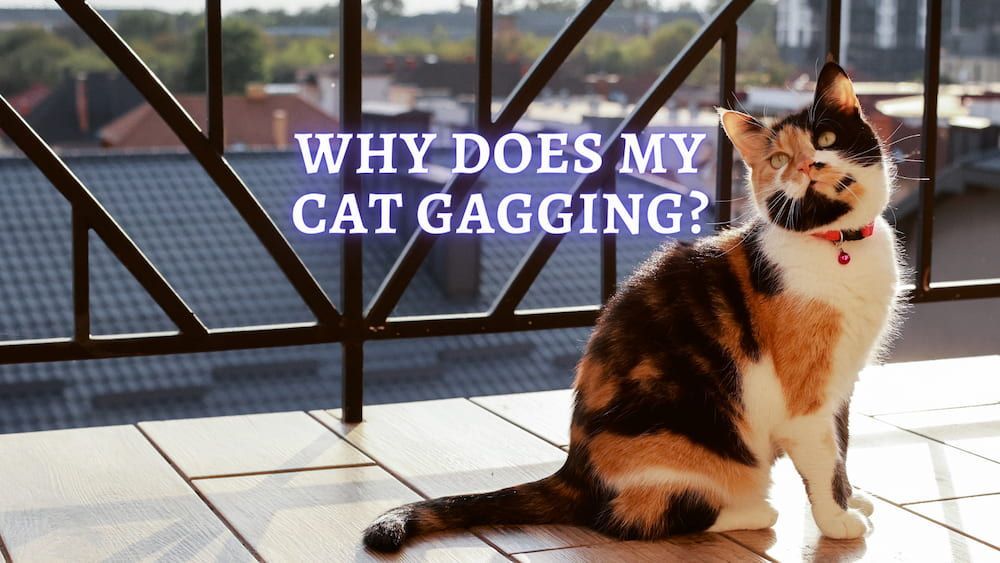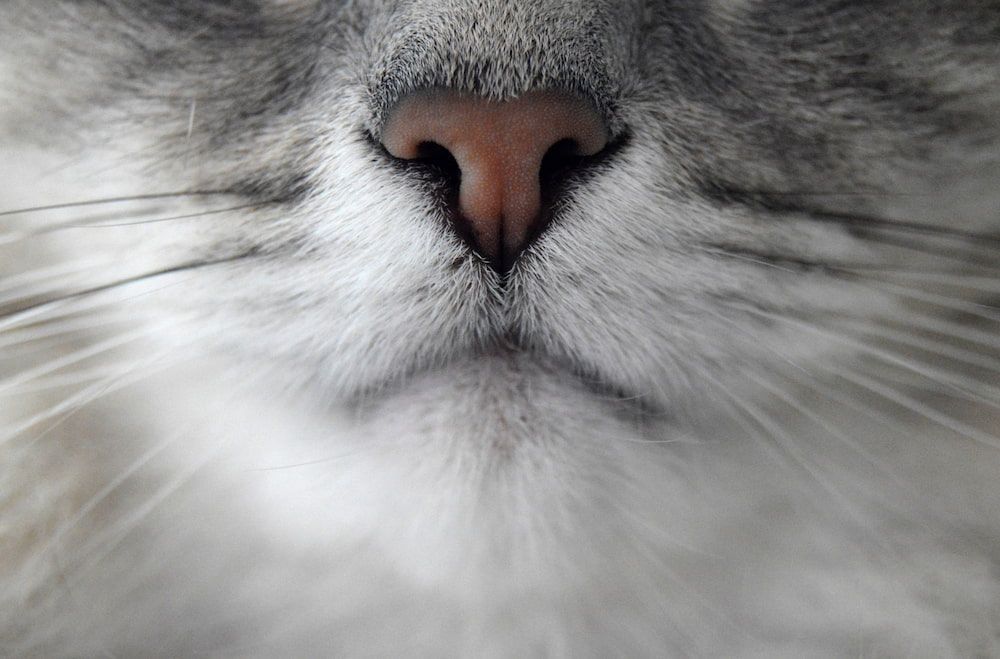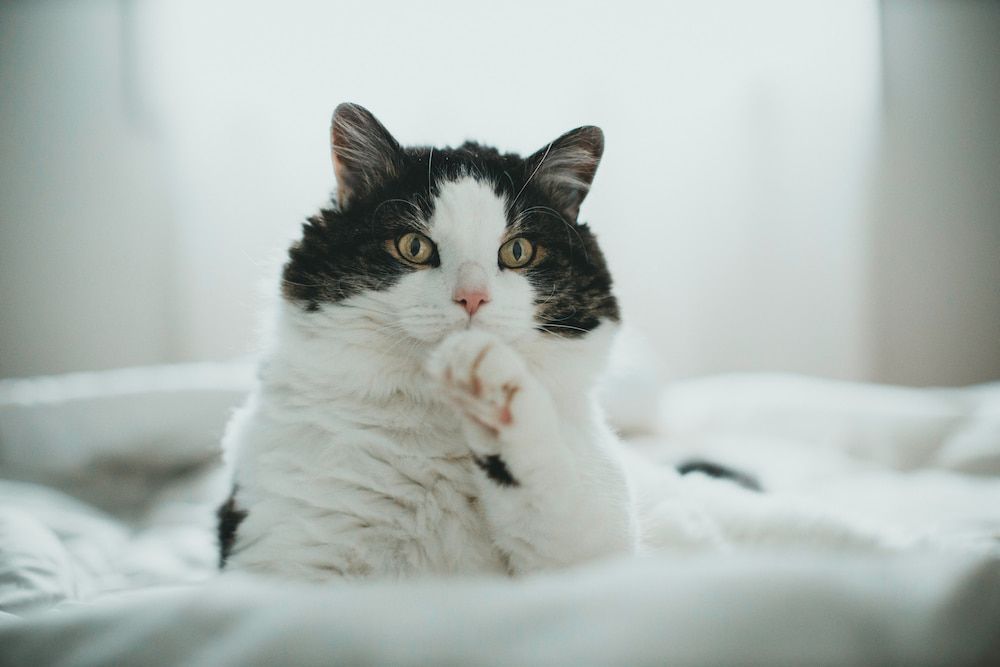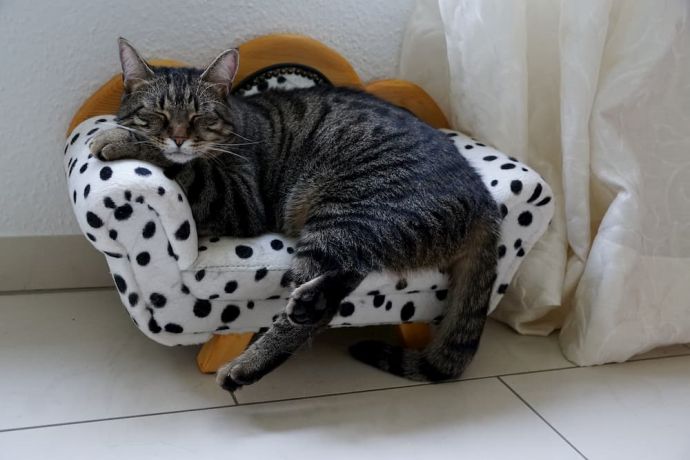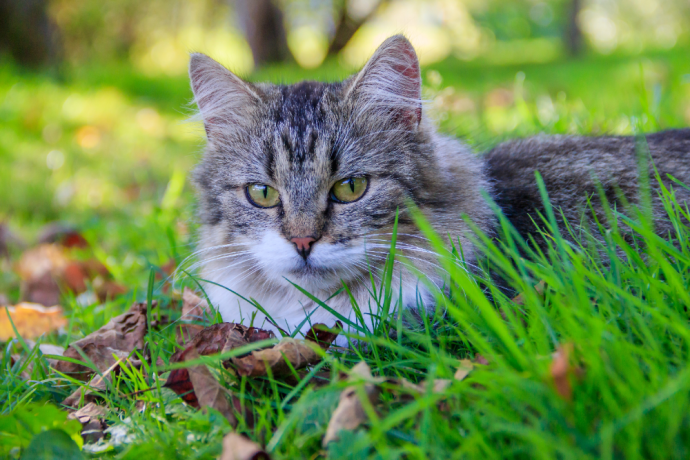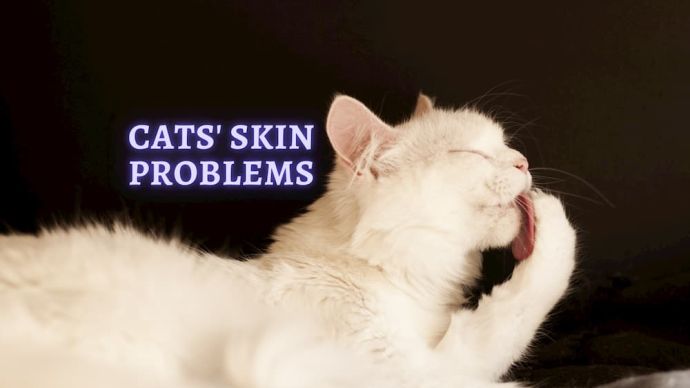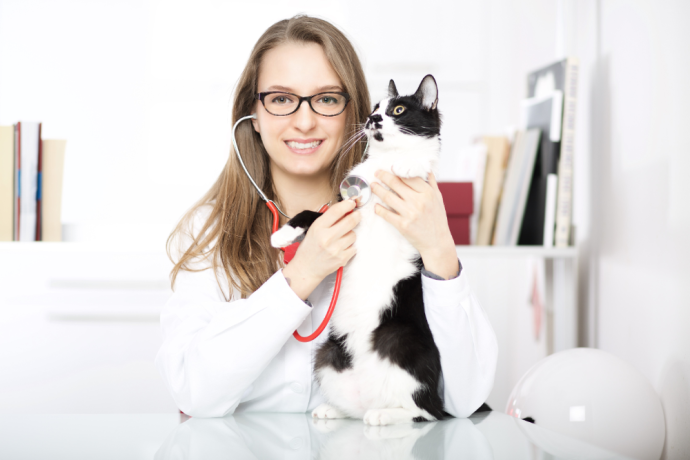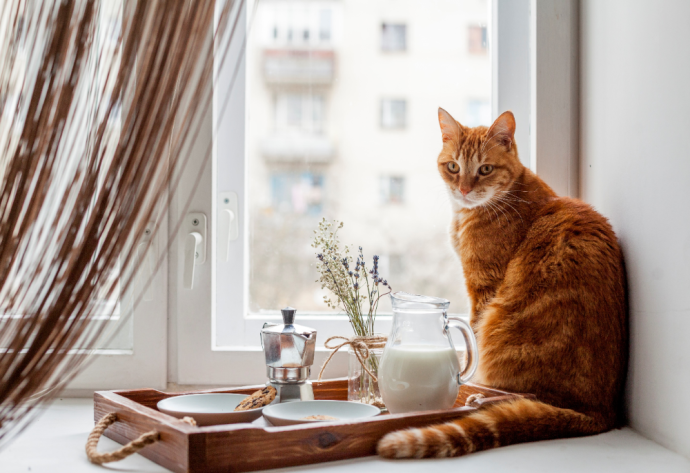Cat Gagging: Why Does My Cat Keep Gagging But Not Throwing Up? (Vet Advice)
Written by:
Author: Dr. Linda Simon
Dr. Linda Simon is a veterinary surgeon working with seven years of experience. She is a fellow of the British Veterinary Association and specializing in animal medicine. Also, she has been the Woman magazine resident vet for the past two years and writes a regular column for them, focusing on pets and their health.
View all 30 articlesLearn about our editorial process and veterinary review board.
Viewed: 1029
Updated on: 12/22/2022
Most owners will have seen their cat gagging at some point, which can be an alarming sight, and the sound is far from pleasant. However, most of the time, cat gagging is not significant and is just ‘one of those things.
Here we’ll explore the various things that cause it and what you need to do. Read on to learn more about why cats gag and when it needs to be taken seriously.
What causes a cat to gag?
Many different things can cause gagging, some of which are serious and some are not. The most common causes would include:
- Hairballs
- A reaction to an irritant in the environment (like dust or smoke)
- Nausea
- A linear foreign object under the tongue or in the throat (like a grass blade or string)
- Coughing and gagging due to e.g. asthma or a lung infection
- Heart disease (although most cats with heart conditions will not cough or gag)
Why does my cat keep making choking noises?
If your kitty is persistently making gagging, retching, or choking noises, then something is going on. We must not take this lightly; a vet visit is in order.
There are a range of things that could be behind choking, and we need to examine the cat and perhaps run some tests to get to the bottom of it.
If they will tolerate it, try to have a look in the throat for any sort of blockage or foreign object. This can be tricky, but your cat’s life could be hanging in the balance. If you can safely remove any obstruction, do so ASAP.
If a cat seems to be having trouble breathing, is in distress, or persistently making a choking noise, they need to see a vet immediately.
If the vet clinic is not open, this would mean a trip to the emergency vet. This can be costly, which is another reason why pet insurance is so important.
Cat parents should familiarize themselves with the local emergency vet’s location in case such a situation arises.
Is my cat coughing or gagging?
This is an excellent question. Not only do pet parents struggle to decipher a cough vs a gag vs a retch, so do many vets, and it is not always immediately obvious.
Coughs are actually not that common in felines. They are a sudden ‘expulsion’ of air. Coughs are generally associated with asthma or other lower airways disease. A cough should not usually cause drooling or nausea.
It is a great idea to take a video of your pet when they are making the noise, so you can show it to your vet. Many vets can remotely assess these videos via email; for all those cats who hate coming to the vet!
Why do cats gag at combs?
While some cats will gag at the sound of a comb being flicked along its length, this is not the case for every person.
This behavior has been plastered on the internet, with videos of cats doing this having many views on TikTok and Instagram. The poor pet, I’m sure they aren’t happy at all when this latest’ trend’ is tried out on them.
For the pets who do gag, it is thought to be because of their sensitive sense of hearing. The high-frequency sound causes the larynx to vibrate, which feels strange and unexpected for your cat. This causes cat gagging, which comes on fairly quickly and can be extreme.
While you may be tempted to try this out on your cat, think about how unpleasant it can be to gag. Your cat will thank you when you restrain yourself!
What to do when your cat is gagging?
If your pet suddenly do this, try not to panic. They may be bringing up a hairball or some food has gone down the wrong way. Even a healthy feline will do it from time to time.
If they has just been eating, consider if they have possibly eaten something stringy, strong-tasting or smelly.
Consider also if they have perhaps gobbled up their food too quickly or if they have eaten too much food. This stresses their digestive system and can sometimes result in gagging and regurgitation. Frequent offenders should be fed from a slow feeder bowl.
Keep a close eye out for any other symptoms, and ensure that gagging is not persistent. If your cat keeps gagging, they do need veterinary attention.
For most cats, this is not an emergency situation, and they would not need an emergency vet if they are otherwise well, and the gags are not frequent.
Do I need to see the vet immediately?
When they see their cat gagging, most owners want to know if they need to rush to see a vet immediately or not. Realistically, most cats gag occasionally, which does not mean anything is seriously wrong.
Cat gagging can happen when they groom themselves or when there is dust or cooking fumes’ tickling’ a cat’s throat. We can also see some gagging if a cat has been eating spoiled food, and after a bite, their taste buds kick in and warn them to bring the food back up promptly.
If your feline friend is gagging but also seems to be having trouble breathing or is choking, this is another story. There could be a foreign body in their throat, or they may be having a life-threatening asthma attack. In this scenario, you need to seek out prompt veterinary advice.
RELATED: Ask a Vet a Question
What do I do if my cat has hairballs?
Hairballs are a common issue, especially in longer-furred felines. They can occur all year round, but we see them more often in the summer when cats shed more. We can see a big ball of fur-coated mucus or slime in the shape of the food pipe.
A self-grooming causes the dead fur to dislodge, which can then be swallowed. We can help resolve this issue by:
- Using hairball medications regularly
- Grooming your kitty daily or twice a day with a good quality brush such as a Furminator; many pets love this time spent together
- Feeding a hairball reduction food
Remember, the odd hairball is typical, and even if your cat vomits it up, this is not something we need to worry about. However, persistent gagging associated with hairballs could point toward an issue.
You will likely notice more hairballs if a cat has fleas or underlying skin diseases (like allergies). This is a sign of skin disease when they occur alongside other symptoms such as excessive grooming, bald patches, and red skin.
FAQ
Why does my cat keep gagging but not throwing up?
Gagging does not always precede vomiting and is not always a sign of nausea or wanting to be sick. While it can occur alongside vomiting, this is not always the case.
One of the more common reasons we might see a pet gagging but not vomiting would be when they have foreign objects in their throat.
Some owners may sometimes mistake a cough for a gag, which could also be why the animal is not actually gagging.
Why is my cat wheezing and gagging?
Wheezing is a sign that your pet is having trouble breathing. It is a high-pitched noise that tells us the airway is partially blocked. The most common reason for gagging and wheezing would be asthma.
Asthma tends to affect younger cats, with the average age at diagnosis being about 4 or 5. Most asthmatic cats can be managed well with allergen avoidance and medication.
Why is my cat gagging and coughing; is there something in their throat?
Coughing alongside gagging tends to happen when there is a lung disease, such as asthma or chronic bronchitis.
We can also see coughing and gagging when there is a respiratory infection, which will cause inflammation in the lower airways.
Though a cough in a dog is frequently linked to heart disease, the same cannot be said for cats. They can have quite advanced heart disease with no obvious cough.
Why is my cat trying to throw up but can’t?
Gagging and retching that does not result in vomit, can have a range of causes. We can see this occurring with nausea or a lodged foreign body.
Chronic nausea can indicate an underlying disease such as liver disease, kidney disease, or gallbladder disease. However, for most, the gagging is associated with actual vomiting.
When cats feel nauseous, gagging and drooling, they usually vomit as long as they have food in their stomach.
I’m worried my cat’s gagging is a sign of a medical condition
Chronic gagging can indeed be caused by an underlying cause such as the toxin build-up from liver disease or kidney disease. However, we must remember that these cats will have other signs too.
On top of the gagging, we may see symptoms such as extreme thirst, a bloated abdomen, weight loss, reduced eating or abdominal pain.
When a cat is otherwise unwell, it is important we have them assessed so we can get to the bottom of things.
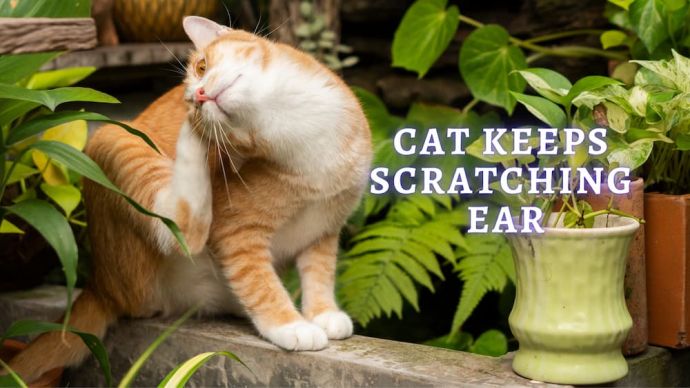 Cat Veterinary Tips Why is my Cat Scratching their Ears? (Veterinary Advice)
Cat Veterinary Tips Why is my Cat Scratching their Ears? (Veterinary Advice) - 1194
- 0
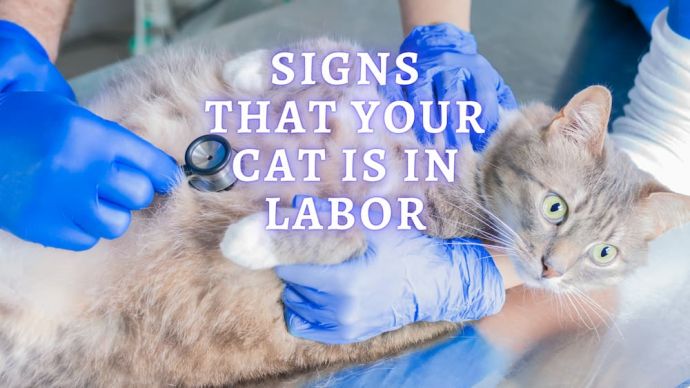 Cat Veterinary Tips Signs That Your Cat is in Labor: How to tell if a Cat is Pregnant?
Cat Veterinary Tips Signs That Your Cat is in Labor: How to tell if a Cat is Pregnant? - 13936
- 1
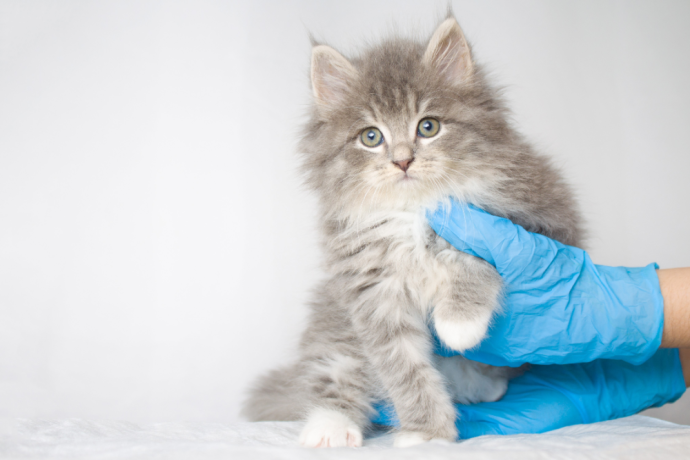 Cat Veterinary Tips Dehydration in Cats: Causes, Signs, Symptoms, and Treatment
Cat Veterinary Tips Dehydration in Cats: Causes, Signs, Symptoms, and Treatment - 365
- 0
 Cat Care Why Does My Cat Attack My Legs? 10 Reasons Why and What To Do About It (Vet-Approved Advice)
Cat Care Why Does My Cat Attack My Legs? 10 Reasons Why and What To Do About It (Vet-Approved Advice) - 45080
- 21
 Cat Veterinary Tips Cat Stomach Gurgling: Vet Advice on Why is Your Cat Stomach Gurgling?
Cat Veterinary Tips Cat Stomach Gurgling: Vet Advice on Why is Your Cat Stomach Gurgling? - 33729
- 4
 Cat Veterinary Tips My Cat Lost its Voice: Can Cats get Laryngitis? (Vet Advice)
Cat Veterinary Tips My Cat Lost its Voice: Can Cats get Laryngitis? (Vet Advice) - 22889
- 13









